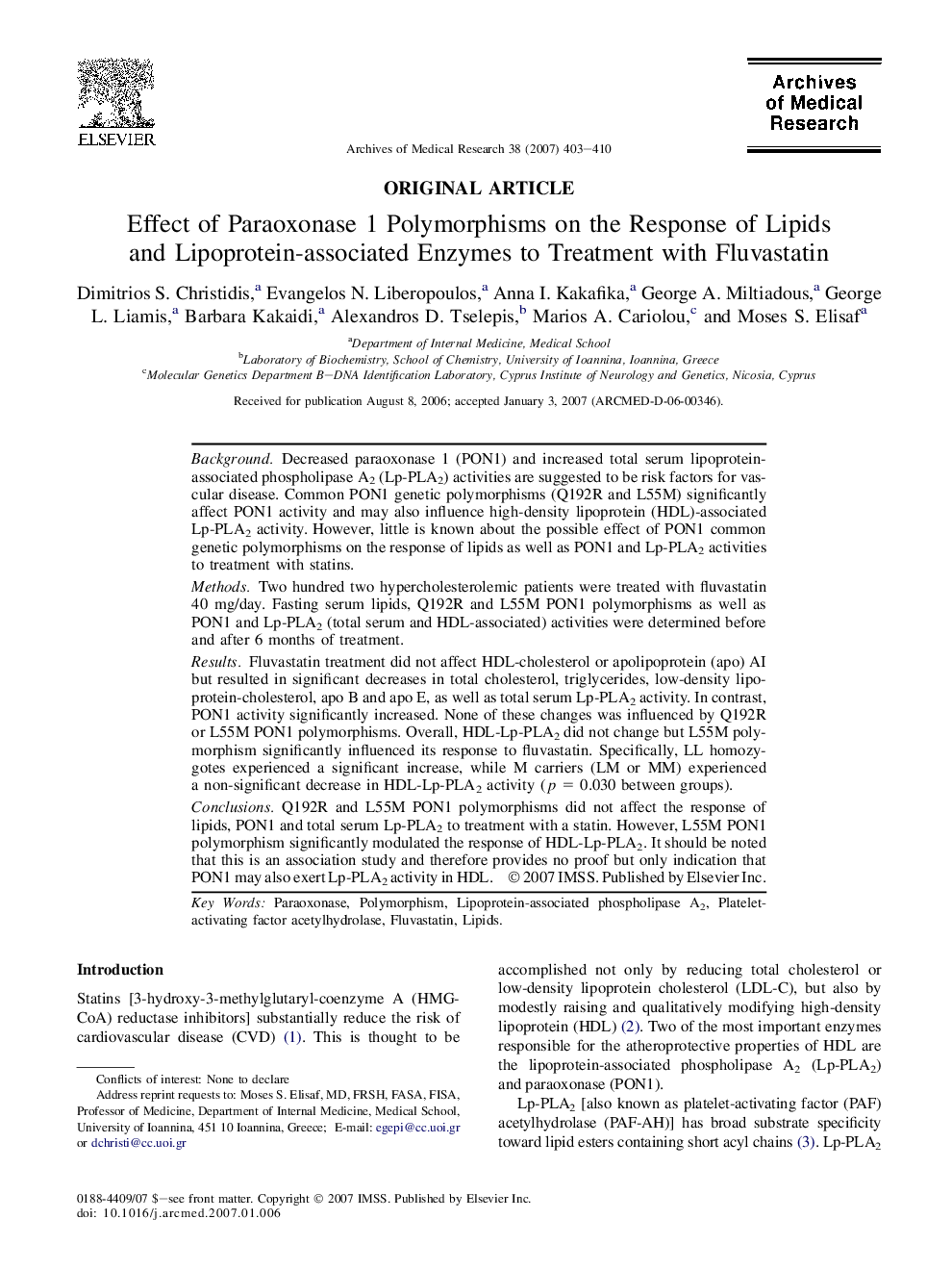| Article ID | Journal | Published Year | Pages | File Type |
|---|---|---|---|---|
| 3447784 | Archives of Medical Research | 2007 | 8 Pages |
BackgroundDecreased paraoxonase 1 (PON1) and increased total serum lipoprotein-associated phospholipase A2 (Lp-PLA2) activities are suggested to be risk factors for vascular disease. Common PON1 genetic polymorphisms (Q192R and L55M) significantly affect PON1 activity and may also influence high-density lipoprotein (HDL)-associated Lp-PLA2 activity. However, little is known about the possible effect of PON1 common genetic polymorphisms on the response of lipids as well as PON1 and Lp-PLA2 activities to treatment with statins.MethodsTwo hundred two hypercholesterolemic patients were treated with fluvastatin 40 mg/day. Fasting serum lipids, Q192R and L55M PON1 polymorphisms as well as PON1 and Lp-PLA2 (total serum and HDL-associated) activities were determined before and after 6 months of treatment.ResultsFluvastatin treatment did not affect HDL-cholesterol or apolipoprotein (apo) AI but resulted in significant decreases in total cholesterol, triglycerides, low-density lipoprotein-cholesterol, apo B and apo E, as well as total serum Lp-PLA2 activity. In contrast, PON1 activity significantly increased. None of these changes was influenced by Q192R or L55M PON1 polymorphisms. Overall, HDL-Lp-PLA2 did not change but L55M polymorphism significantly influenced its response to fluvastatin. Specifically, LL homozygotes experienced a significant increase, while M carriers (LM or MM) experienced a non-significant decrease in HDL-Lp-PLA2 activity (p = 0.030 between groups).ConclusionsQ192R and L55M PON1 polymorphisms did not affect the response of lipids, PON1 and total serum Lp-PLA2 to treatment with a statin. However, L55M PON1 polymorphism significantly modulated the response of HDL-Lp-PLA2. It should be noted that this is an association study and therefore provides no proof but only indication that PON1 may also exert Lp-PLA2 activity in HDL.
